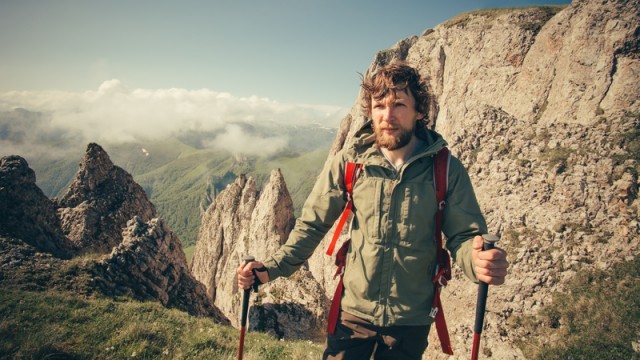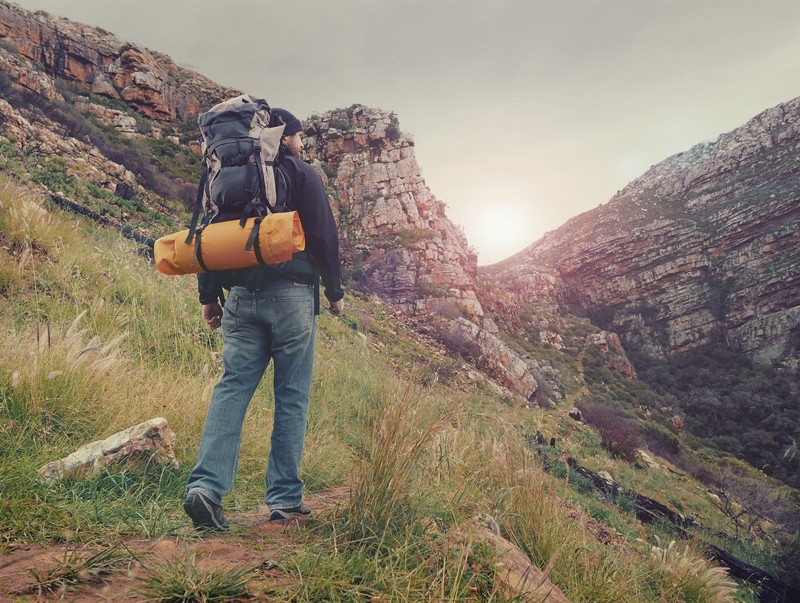
A Bad State of Mind
Whether you are surviving in the wilderness or just camping out with friends it is very important to take the situation seriously. One little mistake or an accident can be a life threatening event.
If you are too cocky or a know it all, your manner will portray you as a person that does not really care about what they are doing or what is going on. This can turn out to be a morale breaker and bring out the worst in people that have to work closely together.
When it comes to wilderness survival, whether you are really roughing it or if you are faced with a survival situation, the key is to avoid making mistakes.
These basic survival skills, not followed, translate into potentially deadly mistakes.
Read about more potential deadly mistakes you can't afford to make on the slide after the break.

Everyone should get to know these mistakes and how to avoid them for sure. Most prepares will already know them but it’s the people just starting out that need to study them.
Cotton kills.
Cotton is great in the desert
Which desert?
Don’t smell like a bear happy meal. Or puma. Or wolf.
Could be trouble in the Hobo 🙂
cotton and wool are essential
If given the choice between the two…go with wool as it still provides warmth when wet.
Sunny Long Weller
This article is good. It could use a bit more detail on ways to purify water or ways to preserve food. Maybe a sister article with a link????
Nodody wants to click 15 times for each tip
Indeed
Click bait crap
Gee, if only I felt like going through 15 pages to get to the information…
This page is such a joke–sorry I liked it when suggested. Clickbait and poorly written.
lol…..sounds like the Island with Bear Grylls…..lazy and stuck in a rut for 30 days . Great choice of characters , he picked , for the show…..generation X at it’s finest and their siblings .
i have to disagree with some of these. 1: if you are lost in the wilderness, energy is all-important. Use only what is necessary of your energy, expend no more than that. outside of creating a shelter and foraging for food and water ( within a short distance) ,and while staying out of a rut IS important, laziness is KEY. SAVE that energy for moments when you MUST move fast to escape predator or enemy, need to move sites, or have to travel farther than roughly 3/4 mile to forage. 2: knowing your area is key, yes, but in true survival situations, you may need to delve into uncharted territory or areas your map does not show in greater detail. This is where careful observation through exploration of surrounding locals is highly important, but remember to take it easy and slow, save that energy. You may not be able to replenish it all later that day. You just cannot always know exactly what will be in your surrounding area, especially if you must leave yours for a new spot. 3: yes, stalking is very good to use to hunt prey…. but unless you are a crack shot, one hit kills are very difficult. Besides, you may not always have a gun, and in fact in many true survival situations you are unlikely to have one on hand at all times. This is where learning to build snares and traps becomes very vital. and if you DO have a projectile weapon (gun, bow, crossbow, spear, etc.) and are unsure of a one shot kill, go for a crippling shot: legs, spine, abdomen ( hard to move quickly when abdominal muscles are damaged).
Never hike in jeans.
I would add hypothermia
A whole lot of fluff. No meat. Written by someone who’s read others’ work , took some high level points and wrote an article; yet has never gotten out from behind his desk and been outdoors.
Dehydration !!
You got to do what you got to do. You know what else will kill you? Fear
thanks for sharing
Can we get more then a little paragraph per page scrolling 15 pages is a turn off.
Yup, this article SUCKS. But most of your posts are to induce people to click on mediocre articles with a ridiculous amount of ads.
I love hiking